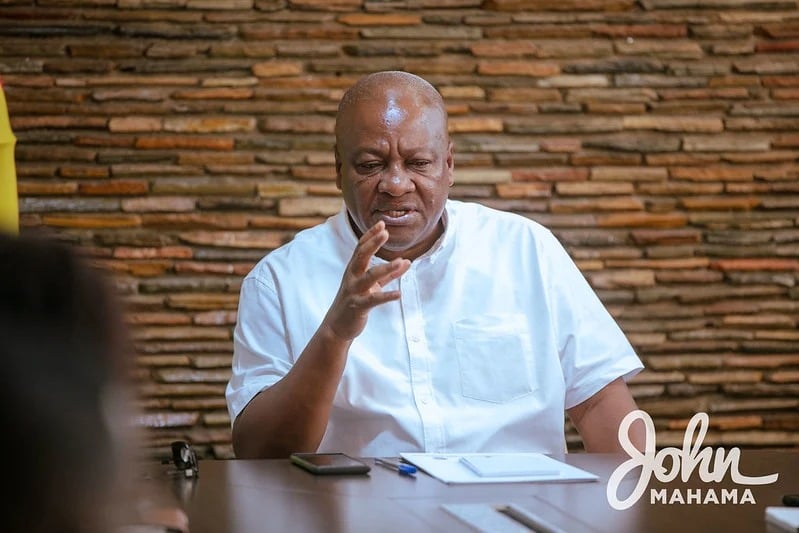Mr. John Dramani Mahama, the 2024 Presidential Candidate for the National Democratic Congress (NDC), has unveiled an ambitious Women in Agriculture initiative aimed at fostering the involvement of young women in the agricultural sector. This initiative seeks to address barriers by enhancing access to land in agricultural regions and providing both financial and business support tailored to the challenges women face in this domain. Key components of his plan include the establishment of a Women’s Development Bank designed to offer low-interest loans and flexible financial services to women-owned businesses, facilitating their growth and empowering them economically. The initiative aims to reserve land within government-owned business enclaves specifically for these enterprises and considers options for primary ownership of market stalls by women who sell in such spaces to bolster their financial independence.
In alignment with empowering women in the agricultural sector, Mahama emphasized the NDC’s commitment to revitalizing markets through a comprehensive “Market Enhancement Programme.” This initiative aims to improve working conditions in markets while uplifting the surrounding communities, with a focus on enhancing the overall well-being of women. Furthermore, he outlined plans to construct modern markets in select areas and renovate existing ones, thereby creating a safer and more efficient environment for market traders, particularly women. To empower young women and those with disabilities, Mahama proposed the launch of an Entrepreneurship Development Programme that intends to foster economic skills and support inclusive participation in business ventures, furthering employment opportunities for marginalized groups.
Recognizing the pressing issue of gender-based violence (GBV), Mr. Mahama laid out a robust agenda to support survivors and prevent future incidents. The NDC plans to establish 16 regional shelters designed to provide comprehensive services to those affected by GBV. Additionally, a “Survivors Care Kit” will be developed to furnish victims with essential resources including legal support, medical care, and mental health services. An online platform for virtual volunteer support will also be introduced to provide confidential services to victims. Mahama highlighted the importance of community involvement through campaigns aimed at creating widespread awareness around domestic violence and sexual harassment, urging the need to ratify international treaties to enhance protection in workplaces.
To strengthen the response to domestic violence, Mahama’s government would focus on operationalizing the Victim Support Fund outlined in the Domestic Violence Act, addressing survivor support holistically. Plans to elevate the Domestic Violence and Victims Support Unit (DOVVSU) to a directorate indicate a move toward more coordinated and effective measures for handling cases of gender-based violence. The establishment of DOVVSU units across police districts is critical to improving accessibility and support for victims. Mahama also noted the need for identifying domestic violence hotspots to concentrate resources and surveillance effectively and suggested upgrading forensic capabilities to improve investigative outcomes in gender-based violence cases.
Beyond immediate support mechanisms, Mahama called for broader efforts to combat discrimination and foster a more inclusive society conducive to economic and political participation for all, particularly women and persons living with disabilities. His framework aims to dismantle entrenched gender biases present in Ghanaian society and address the harmful social norms that perpetuate gender-based violence. He envisions a Ghana where voices of women and marginalized individuals are represented in decision-making processes, thereby ensuring that diverse perspectives contribute to national governance and policy-formulation.
In conclusion, Mr. Mahama’s vision for the next NDC government is framed within a commitment to gender equality, social justice, and the empowerment of marginalized communities. His call to action highlights the importance of voting for a leadership that prioritizes the elimination of gender disparities and enhances access to resources and opportunities for women. Seeking support from the electorate, he envisions the formation of a government capable of eradicating systemic challenges faced by women and others in Ghana, emphasizing that collaborative efforts are essential for building a stronger and more equitable future for all citizens.


